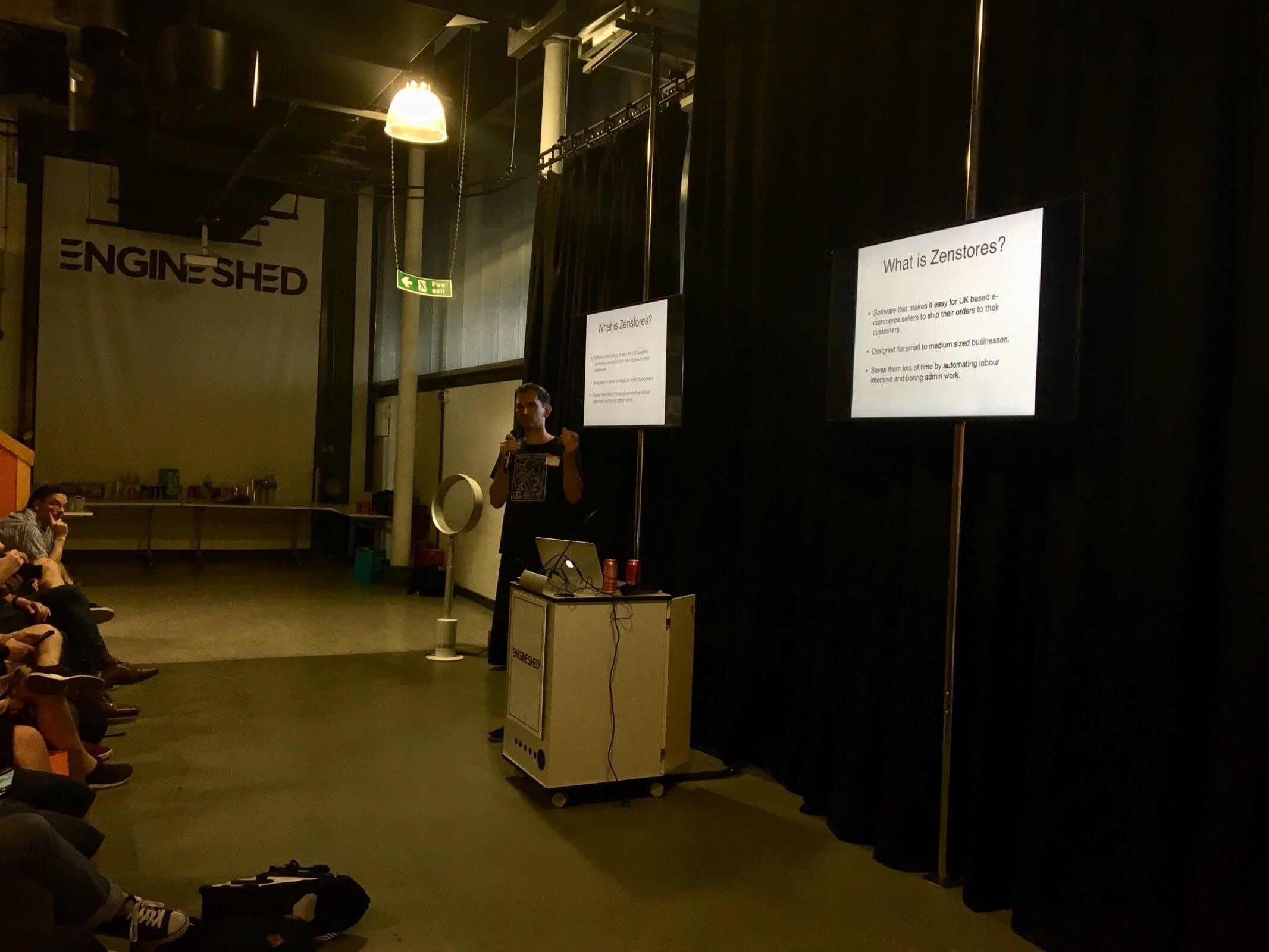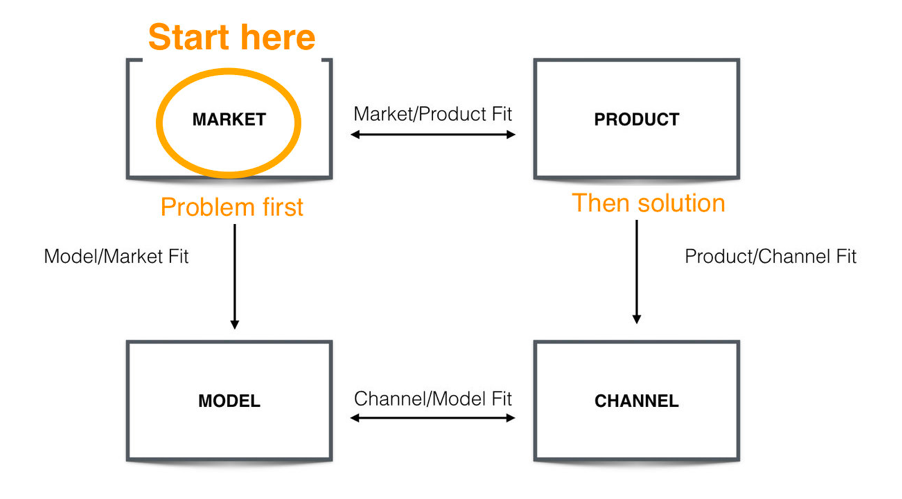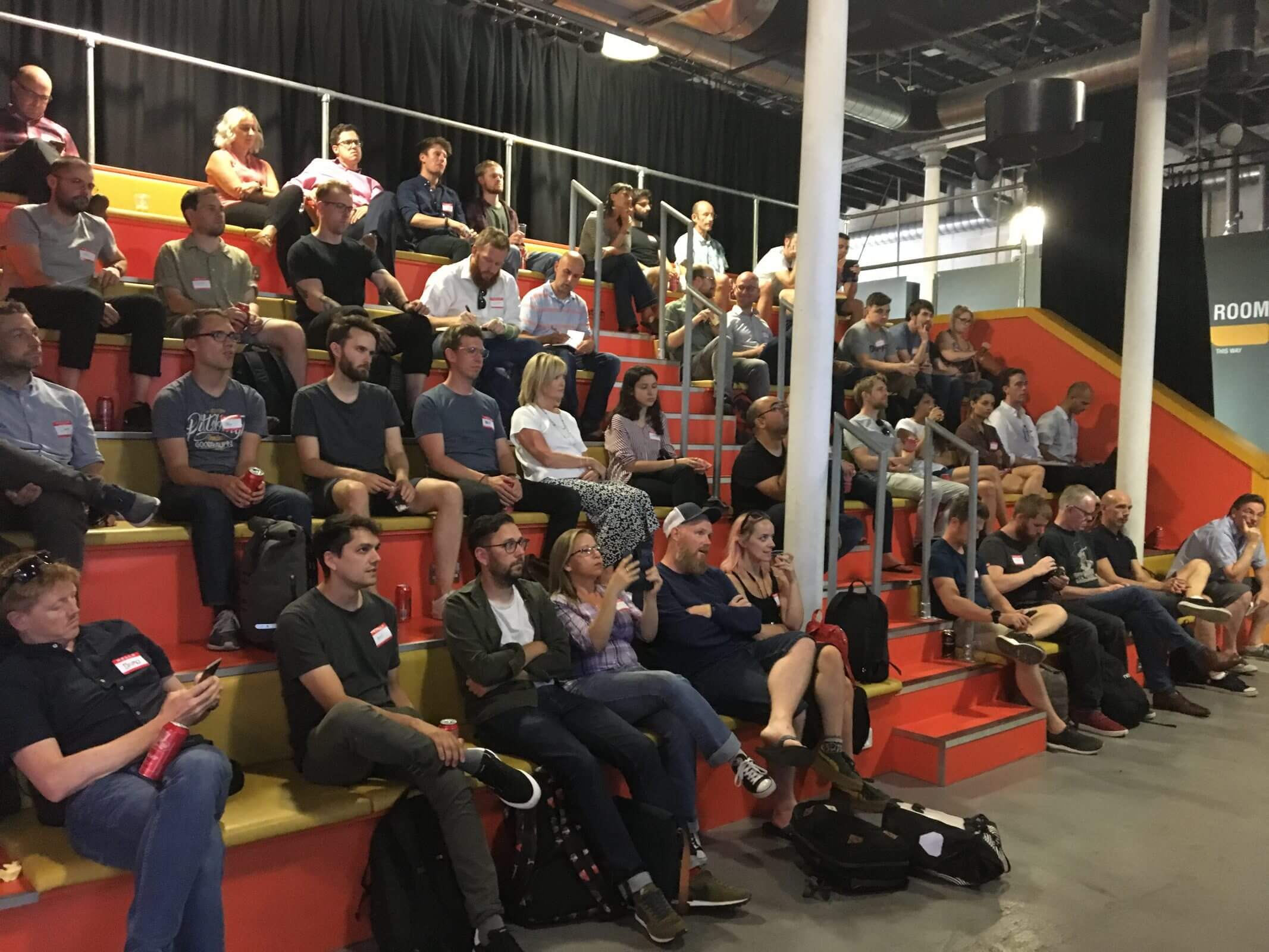Our last Design/ Build/ Market meetup was last Thursday and we had a great turnout! As part of our ‘Successes and Failures’ theme, we explored what successful companies have in common, strategies for growth and resilience and how to turn things around when it all goes wrong.
Our guest speakers were Rick Chapman, Setsquared’s resident entrepreneur, and Ben Reynhart, Zenstores’ co-founder and product developer. Many thanks to both for delivering such engaging and thought-provoking talks, and to the audience for your questions.
Last week, we chatted to Rick about his ideas on what makes a startup a success or a failure. This week, we sat down with Ben to find out more about the key ideas from his talk.
Hi Ben! In your talk, you mentioned that it’s easier to spot opportunities if you’re immersed in an industry (rather than outside looking in).
How did the Zenstores team spot their opportunity for success?
My co-founders had a canvas and print business and they were having problems with taking orders from Amazon and eBay and fulfiling the orders themselves.
They were having to update product photos and listings on multiple sites and thought ‘this is rubbish’, so they came up with a solution.
Experiencing a problem yourself and wanting to fix it is definitely the best way to come up with ideas.
How did your team know they had the right idea?
I met the other founders at Webstart accelerator, an incubator, in 2014. The fact that they’d been accepted was the first good sign.
But our first real confirmation was when people started paying. If you can charge someone money and they get value from your product, it works. That’s a damn good litmus test for an idea!

What has been your biggest challenge? How did you overcome it?
It’s tough in the beginning, because you don’t know what you need to know. We’ve had to learn how to do quite a lot from scratch because none of us has a background in marketing or business.
SETsquared, Rick Chapman especially, provided a lot of quality mentoring. Books, podcasts and audiobooks helped us identify what we needed to know to grow the business. You just have to do as much research as you can and fill in the gaps when you can.
You also need to get to know people who have been there and done it before. I didn’t know anyone in the software as a service (SaaS) industry in Bristol, but our mentors helped us make connections and meet people who could advise us. Meeting people and finding the right mentors is crucial.
Was there ever a point you thought the company might fail? If so, how did you get past that?
I don’t think we were ever going to pack it in, we’ve always believed in our idea and known there’s a market there. We just thought ‘how can we make this better?’
In the first five months we made an app and threw it away because it wasn’t quite right, it didn’t resonate. It was technically very challenging and there were some big hurdles we couldn’t really overcome. And customers just weren’t bothered about it.
It was a bit disheartening but it also felt good to throw that version away and start over. We’d spent ages on it and then when we realised it wasn’t going to work, we just deleted it. Being able to start over is a good habit to get into and it makes sure you stay on track.
You talked about how it can take time to uncover ‘the real problem’ and the importance of observing early users to make sure you’re providing something they value.
How did you go about uncovering your ‘real problem’?
The first version of a product needs to be usable. Your user should be able to make use of it without you telling them what to do.
In software, it’s tempting to release something so early it only just about works. But really what you need to do is release something to a small, handpicked group of people that you can rely on to give you good feedback. And they should be facing the problem you’re trying to fix themselves. You invite them in and get them interested in what you’re doing – they’ll want to get involved in the discussion and try to help you.
Face to face or phone interviews are best because you can really drill down into what they’re saying. If they say ‘oh, it’s great’, you can ask ‘well, why is it great?’ If you keep asking why, you might find that they’re using the product for something completely different than you thought, or they don’t like it at all and were just being polite.
You said that the most important thing you’d learned was that the product-market fit isn’t the only thing that matters when starting a SaaS business.
How did you come to realise that?
In the startup world, a common piece of advice you hear is ‘focus everything on getting to the product-market fit’, especially before raising series A funding. However, after discovering a compelling presentation by Brian Balfour of Hubspot, we realised that this advice neglects key areas of the business that also need to be validated.
The product-market fit is only part of the puzzle. There are three other ‘fits’ – four in total – that you need to work out for your product to be successful and sustainable. There’s also the market-channel fit (is your product designed to work with your acquisition channels?), the channel-model fit (can your pricing model support your acquisition costs?) and your model-market fit (are your target customers prepared to pay for your product?).

If you use that framework from the start, it will help you answer a lot of questions and give you a far broader perspective of your market.
You should always look at your market first, then adjust your product to fit the market. It’s a small shift in perspective but it useful and it should be better known.
What does success feel like to you?
The three of us co-founders have regular meetings to make sure we stay aligned and want to achieve the same thing. We all have ambitions about what we’d like to achieve financially – if I could get a helicopter pilot’s license I’d be very happy about that!
But all three of us want to make a product that’s used and loved by millions of people. We’re on thousands of users at the moment but millions is the goal. And that’s not for financial reasons – we want to create something useful and valuable.
About DBM
Design/ Build/ Market is a quarterly event for people involved in the creative and digital industries who are passionate about design, development and marketing.
Keep an eye on our Meetup page for future events.
